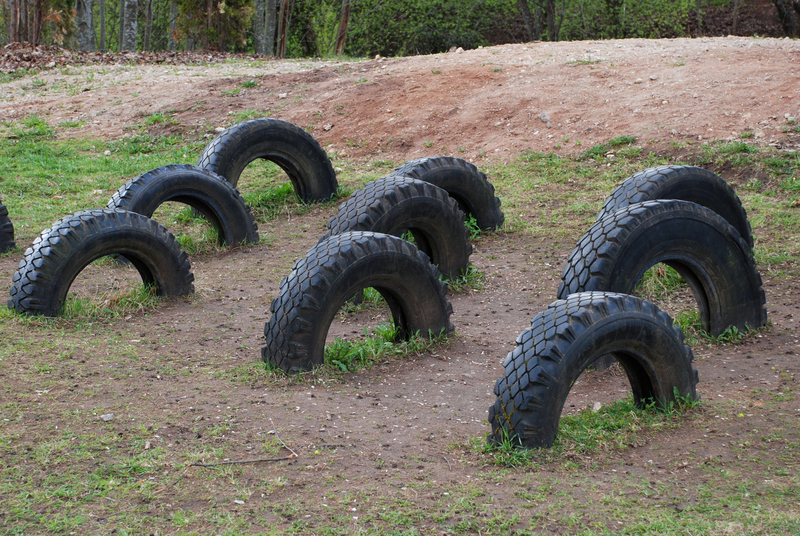Comparing Rubbish Removal Bags and Skips for Your Next Big Declutter
A large-scale decluttering project, whether it's spring cleaning, renovating a home, clearing a garage, or moving, can generate a substantial amount of unwanted rubbish and waste. When faced with the challenge of disposing of this accumulation, many households and businesses are left weighing the options between rubbish removal bags (also known as skip bags or waste sacks) and traditional skips. The right waste disposal solution makes your decluttering not only easier and more efficient, but also more cost-effective.
In this comprehensive article, we'll provide a detailed comparison of rubbish removal bags and skip hire for your next big declutter. We'll evaluate their advantages, disadvantages, use cases, costs, and environmental impact so you can choose the best rubbish removal method for your specific needs.
Understanding Your Options: Rubbish Removal Bags vs. Skips
What Are Rubbish Removal Bags?
Rubbish removal bags are heavy-duty disposable bags (often known by brand names like Hippo Bag, Skip Bag, or Gorilla Bag) designed to hold and transport large quantities of waste. They come in several sizes, typically ranging from 1 to 4.5 cubic yards, are delivered folded, and can be filled at your own pace. When ready, you contact the supplier, and the bag is collected and disposed of for you with a crane-equipped vehicle.
- Light and foldable: Delivered flat-packed, easy to store until needed.
- Flexible placement: Can be placed in driveways, gardens, or other accessible spots - with a few placement requirements.
- No need for a skip permit: If kept on your own property.
What Are Skips?
Skips are solid, metal open-topped containers available in various sizes (typically 2 to 16 cubic yards for residential use). The skip is delivered to your location and left for a set period, after which it's collected and the waste is disposed of in compliance with local regulations. Skips are a longstanding method for handling construction, renovation, and bulk waste.
- Sturdy containers: Built to handle heavier, bulkier waste (soil, rubble, mixed renovation debris).
- Variety of sizes: Mini, midi, and builder's skips to suit different projects.
- Usually require a permit: If sited on a public road; extra cost and notice needed.

Key Comparison Points: Rubbish Removal Bags vs. Skip Hire
1. Costs and Value for Money
Budget is a key factor when choosing your waste removal solution. Here's how rubbish removal bags and skips compare:
-
Rubbish removal bags: Typically cheaper up front, particularly for smaller amounts of waste. You pay for both the bag (if not included in the collection fee) and the subsequent pick-up--no hidden charges for permits or parking, if used on your property.
Prices often range from ?30-?180 for collection, depending on the bag size and area. -
Skip hire: Initially more expensive--cost includes delivery, collection, permit (if needed), often VAT, and sometimes parking suspension fees.
Price varies widely (?100-?450 or more), influenced by location, skip size, contents, and permit requirements.
The overall cost advantage of rubbish removal bags is typically best for smaller loads and lighter, mixed waste. For bulkier, heavier, or very large amounts, a large skip might provide better value--especially if you can fill it quickly and avoid extra hire days.
2. Convenience and Accessibility
- Rubbish bags: Highly convenient and flexible. You can buy the bag in advance, store it until needed, fill it at your own pace, and request collection when ready. Delivery and collection are simple, provided the site is accessible for lifting machinery (within 4-6 metres of the road for most providers).
- Skips: Requires bookings for delivery and collection days. If sited on a public road, a permit arrangements can add delay and cost. Loading is easy for heavy, continuous work, such as during renovations where waste accumulates quickly.
For DIY declutterers and weekend projects, rubbish bags offer unbeatable flexibility. For time-constrained or professional projects, skips are often more practical.
3. Size and Capacity
Both options come in varying sizes, but with key differences:
- Rubbish removal bags: Usually hold from 1 cubic yard (roughly 10 bin bags) to 4.5 cubic yards (35-40 bin bags). Weight limits (usually 1-1.5 tonnes) apply.
- Skips: Available from 2-yard 'mini' skips up to 16-yard 'builders' skips for household jobs. Much larger "roll-on, roll-off" skips exist for heavy commercial use.
If you're disposing of mostly light or mixed waste, bags may be ample. For heavy, dense, or uneven loads (soil, brick, hardcore), skips are essential and better equipped for the task.
4. Placement and Space Requirements
- Rubbish removal bags: Can be positioned in gardens, driveways, or side alleys--as long as the grab lorry can reach it from the roadside (usually within 4m). No permit needed for private land.
- Skips: Require a flat, accessible space. For roadside placement, you'll need a permit (and may be subject to restrictions or fees in city areas).
If space or permission for a skip is problematic, rubbish removal bags are a lower-hassle alternative.
5. Timeframe and Flexibility
- Rubbish removal bags: Fill over days or weeks. No strict collection deadline, making them ideal for slow-paced declutters. Bag suppliers generally offer a collection window after booking (eg. 3-5 days).
- Skip hire: Usually rented for a week (or less/more, as arranged). Extra days incur additional cost, and long-term hire may not be possible in busy locations.
For unpredictable or piecemeal projects, bags win out. For short, intensive efforts, skips are perfect.
6. Permitted Waste Types
Both skip bags and skips restrict certain waste types, particularly items categorised as hazardous or requiring special disposal.
- Permitted in both: Broken furniture, wood, garden waste, old toys, general household clutter, plastics, metal, packaging.
- Generally not accepted: Asbestos, paint, solvents, medical waste, batteries, tyres, electricals (check supplier for WEEE rules), refrigerators, and gas bottles.
Heavy waste--like rubble, concrete, brickwork, and soil--may not be permitted in rubbish bag collections or may need a specific heavy-duty bag. Skips are usually accepted for heavier construction debris but confirm with the provider.
7. Environmental Considerations
People are increasingly concerned with the environmental impact of waste disposal. Most major skip and bag providers sort waste at dedicated centres, maximising recycling and reducing landfill. Opt for licensed waste carriers that boast strong recycling records (over 90% is common).
- Rubbish removal bags: Reduce double-handling and allow for pre-sorting at home, aiding recycling, but beware of bags ending up in landfill after emptying if non-reusable.
- Skips: Many providers sort the mixed waste; skips themselves are reused.
Both choices offer broad environmental benefits when you select a responsible waste disposal company. Always check the recycling rate and credentials.
Pros and Cons Summary Table - Rubbish Removal Bags vs Skips
| Rubbish Removal Bags | Skips | |
|---|---|---|
| Cost | Lower for small/medium loads | Better for large, heavy projects |
| Capacity | 1-4.5 cubic yards (25 bags) | 2-16 cubic yards |
| Heavy Waste | Limited capacity | Ideal |
| Permit Required | No (if on private land) | Yes (on public land/road) |
| Time Flexibility | Any pace | Limited by hire period |
| Placement | Small footprint, flexible | Needs large access/space |
| Ease of Use | Very easy for DIY | Best for big, ongoing works |
When to Use a Rubbish Removal Bag
Waste removal bags are the go-to solution if any of the following apply:
- You're decluttering a house, garage, shed or garden with sporadic bursts of activity
- Space is tight (no room for a skip or road permit is impractical)
- Your project will take time, and you want to avoid pressure to finish within a rental window
- You're disposing of mixed waste - mostly non-heavy items
If you anticipate frequent, ongoing clear-outs, storing a waste removal bag for whenever you need it is exceptionally convenient. Great for homeowners, those moving house, end-of-tenancy clear-outs, and garden renewal projects.
When Skips Are the Best Choice
Skips have several clear advantages, particularly for:
- Major renovations or refits generating substantial heavy, inert waste (soil, tiles, bricks, hardcore)
- Commercial projects or large site clearances
- Situations where waste is produced quickly and space for a skip is ample
- Jobs where you can fill the skip in a matter of days and want it removed promptly
For professionals, building contractors, and those tackling extensive home improvement, a skip is the unbeatable workhorse.

Key Points to Consider Before Deciding
Make your choice by weighing up these factors for your next big declutter:
- What type and volume of waste will you generate? Estimate by itemising your rubbish or using an online waste volume calculator.
- How quickly will you fill the container? Rapid generation suggests a skip; slower accumulation, opt for a removal bag.
- Do you have space for a skip? Especially relevant for urban homes with limited driveways or gardens.
- Can the collection truck access your site? Waste bags still need vehicle access within 4-6 metres for pick-up.
- Are permits and extra costs required? Consider local council rules if planning to place a skip on the road.
- What's your budget? Smaller loads mean greater savings with waste sacks; bigger projects may justify a skip.
- Are you committed to recycling? Ask both skip and rubbish bag companies about their green credentials.
Conclusion: The Smart Way to Declutter
There is no one-size-fits-all answer to the rubbish removal bags vs skip hire debate. For slow-paced, moderate clear-outs, disposal bags are budget-friendly, hassle-free, and easy to organise. Skips remain the king for construction debris, instantaneous heavy waste, and major house overhauls.
Tip: Maximise your value by sorting recycle-friendly items (metal, wood, cardboard) separately and donating usable goods. Choose a reputable, environmentally conscious waste disposal provider for peace of mind.
For your next big declutter, making an informed decision between rubbish removal bags and skips will save you money, time, and stress - while helping the planet and leaving your space beautifully tidy.
